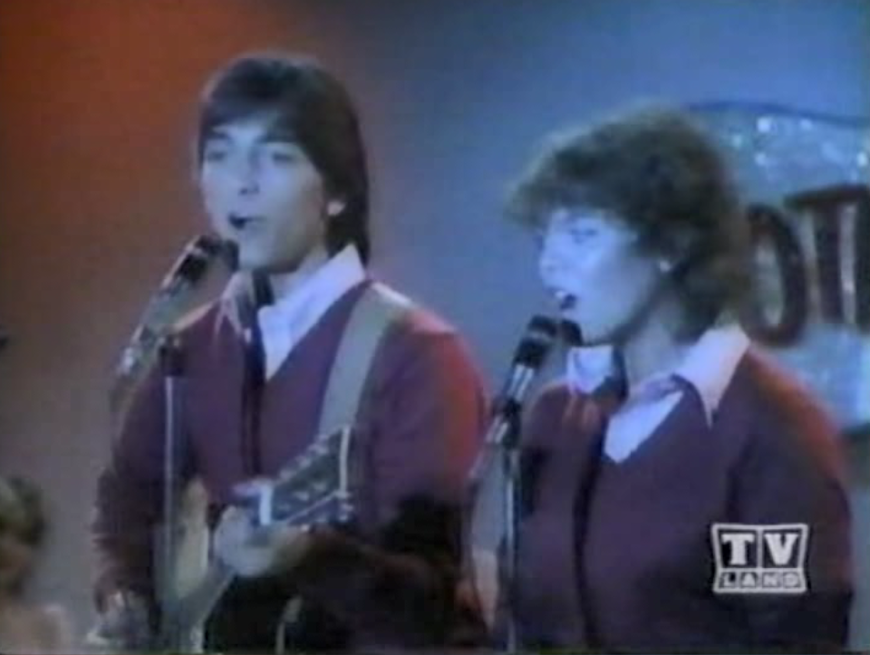 |
| Scott Baio and Erin Moran on Happy Days. |
I grew up with folk music—not playing it, mind you, but listening to it. My parents had been folk fans in the 1960s and carried their love of the genre into the 1970s and '80s as they raised kids. They liked a lot of the folk music biggies: Joan Baez, Judy Collins, The Chad Mitchell Trio, etc., plus folk-adjacent acts like Simon & Garfunkel and Joni Mitchell. They would even take my sister and me to folk music concerts occasionally. They weren't Dylan freaks, though. Maybe he was too "far out" for them.
As an adult now myself, I still listen to folk music from time to time. I think it's part of a balanced musical diet, along with lots of other genres and styles. Personally, I lean toward the older, rawer stuff from the 1920s and '30s, e.g. the crudely-recorded songs Harry Smith collected on the Anthology of American Folk Music (1952), rather than the cleaner, poppier, more "professional" folk songs from the 1960s. But I dig the '60s stuff, too. After all, what would life be without "Lizzie Borden" by The Chad Mitchell Trio?
This week on These Days Are Ours: A Happy Days Podcast, we're reviewing "Who Gives a Hootenanny?" This episode is all about the folk music fad of the '60s and how it affects the Happy Days characters. Specifically, Joanie and Chachi (Erin Moran and Scott Baio) have to sing folk music if they want to be on TV, but Fonzie (Henry Winkler) feels they are betraying his beloved rock & roll. I'm sure the folk craze really did come as a shock to greasers. What must they have thought when "Tom Dooley" by The Kingston Trio went to #1 in 1958? It must've sounded like something from another planet.
But how is "Who Gives a Hootenanny?" as an episode? And do Fonzie, Joanie, and Chachi ever work out their musical differences? Find out by clicking the play button below!

No comments:
Post a Comment